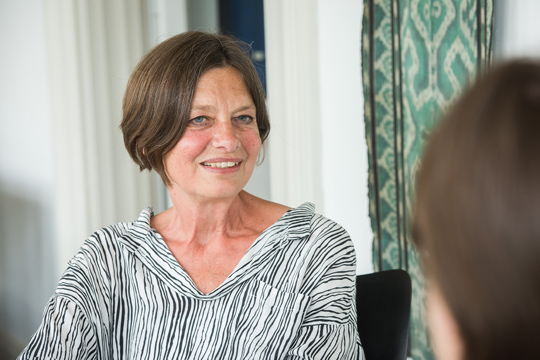Teaching in Tandem
Freiburg, Aug 22, 2017
The state initiative „niche fields" supported by the Ministry of Science, Research and Art Baden-Württemberg (MWK) funds fields with a low number of students or few nationwide university departments. The goal is to ensure the fields' viability. Three Freiburg projects running for two years are being supported in the area of education. Julia Dannehl spoke with the initiators and is introducing their efforts through this series.

Photo: Boggy/Fotolia
The project „Academic Ethnology and Professional Practice" will receive funds in the amount of about 137,000 Euros. The purpose of the project is to connect students' university education with an ethnologist's professional practice. Prof. Dr. Judith Schlehe and Prof. Dr. Gregor Dobler from the Department of Ethnology started the project and developed a tandem teaching model through which university instructors offer seminars together with representatives from the field.
Frau Schlehe, you are an ethnology professor. What makes your „niche field" so special?
Judith Schlehe: We examine social and culture practice. The field of ethnology seeks to take a look at global issues and the entire world while, at the same time, try to proceed with as much detail as possible in our field research. That is, we seek to capture people's daily experienced practice, knowledge and experiences in the most diverse constellations. That is why we don't view ourselves – except for the number of staff and students – as a niche field. Our goal is to examine sociocultural dynamics. We don't compare cultures in a systematic sense because you shouldn't compare apples with oranges and phenomena should be analyzed in their specific contexts. At the same time we always consider the global network and the Big Picture. In essence, our job is to perform cultural translation work.
Why is cultural translation work so important?
We are living in a post-colonial globalized world in which we encounter people from other worlds in our daily lives. That is why it is important to develop an understanding for what is happening in intercultural encounters and why kinds of structural conditions are shaping them. Ethnology seeks to show how we are often running around with a Euro- or ethnocentric view of things that we wish to deconstruct at best. We also want to inspire a shift in perspective. The field seeks to question prejudices from both sides, uncover certain things we take for granted and try to shake up what we assume to be true. Only then we can achieve communication and cooperation beyond continuously newly constructed boundaries surrounding cultural space.

The purpose of ethnology ist o examine sociocultural dynamics worldwide, says Judith Schlehe. Photo: Klaus Polkowski
What are the features of the funded project?
What is new is our tandem teaching classes. The model is actually quite sleek: an ethnology instructor leads the seminar together with a person from the field. Up until now it wasn't possible from either a financial or practical perspective. The goal is to bring people outside the university together with academic practice and to set something fruitful into motion. Besides, students should be encouraged to apply for jobs and make their skills known in areas such as flight and migration, development assistance, education, media or museum work, corporate cultures, environmental policies, disaster relief, health or interfaith dialogue.
How will this educational concept's implementation look in concrete terms?
There will always be a tandem seminar for undergraduate and graduate students. However, we may not always invite one person per semester to accompany us the entire time. It could be multiple people from the professional world who guide two or three meetings, depending on the amount of time they have available. A professor or the new staff member hired for this purpose, Saskia Walther, will accompany the class the entire semester long and take on the responsibility of correcting homework assignments, managing university credits (ECTS points), passing out grades, etc.
We will have a large preparatory workshop in November 2017 to which we will invite all interested parties from our ever-expanding professional network. We will discuss how they can integrate public events, new spaces for dialogue or scientific-related internships into the seminars and other mutual offerings and what we can provide them in turn from the academic knowledge and analysis sectors.

